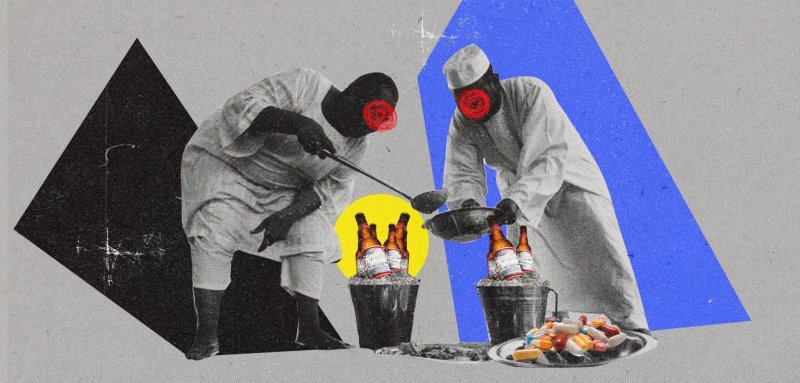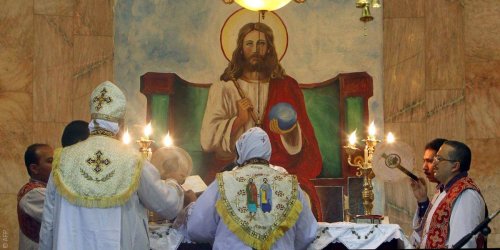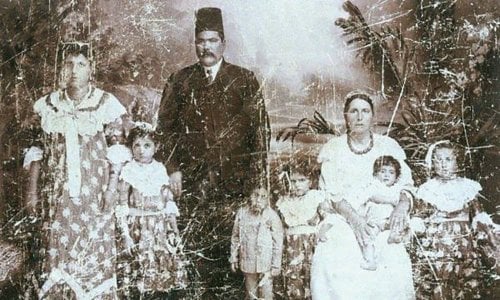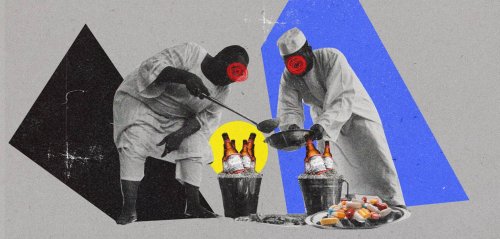In the words of the bard Ahmad al-Sammani, during his recitation of the poem by the mystic poet Abd al-Rahim al-Bura’i al-Yamani, “O, those of you leaving for Mina under my lead, you troubled, on the day of travel, my heart.”
In an atmosphere full of grief and nostalgia, the people of Sudan begin their preparations for Eid al-Adha. They usually consist of patterns that are nowhere near being devoid of uniqueness and distinction, such as brewing the “sharbot” drink. This drink is a local, native wine that has been handed down for generations and is usually associated with occasions in which sheep are slaughtered, such as weddings and the slaughter of the Aqiqah (the tradition of sacrificing an animal on the occasion of a child’s birth), in addition to Eid al-Adha.
Types of “Sharbot”
There are different types of “sharbot”. It is either brewed from dates — which is the most popular version there — or from sorghum — which is called “al-a’ysh” in Sudan — or from ground sesame seeds or hibiscus (carcade or roselle), depending on the region and the most prominent crops available there. Palm trees litter the north of Sudan, while hibiscus can be found in the east and the middle of the country. The sesame harvest is booming in North Kordofan and the Al Qadarif (also known as el-Gadarif) regions, while the people of Darfur and South Kordofan rely heavily on sorghum for their food and diet.
Preparing and brewing “sharbot” is easy. Dates are placed in a bowl before pouring hot water on them, then spices like cardamom, cinnamon, and ginger are added. A little bit of tamarind, hibiscus, and raisins may also be added, then the mixture is left to sit for a day or two. Yeast is added next right after it is strained. The drink is then left in the refrigerator, which in turn maintains the required degree of fermentation for the brew. The ingredients vary slightly between the types and versions of “sharbot”, since sugar is not added to those that are made with dates, but is added into other variations such as the ones with sesame, hibiscus, and sorghum.
The drink differs from one maker to the other, depending on the degree of fermentation and how it’s done. The longer the drink is left before the straining process, the higher the degree of fermentation. It also differs according to the amount of yeast added, as well as adding plenty of raisins, or adding grape or apple juice to it.
Alcohol bears a strong relation with #Sudan’s social culture. Local and native types of liquor — such as “arak”, which is brewed from dates or guava, and “merisa” (or marissa), which is brewed from sorghum — are quite common
“Sharbot” During Eid al-Adha
The people of Sudan rely heavily on sacrifice slaughter, and in most cases, only sheep are slaughtered, since this is the main theme that Eid revolves around across Sudan. This is due to the fact that Sudanese people usually live together with extended family members, especially in the countryside. Or small families in the cities spend Eid together within the house of the father or the grandfather. The tradition of slaughter carries on throughout all days of Eid, and the lunch feasts are moved from one house to another. Here the true value of “sharbot” is shown — as a drink that helps digest the large quantities of meat ingested during the feasts. It’s presence also creates a unique atmosphere, with every brewer trying to draw attention to his/her skills in creating the best taste and flaunt his/her expertise in making it.
During greetings in Eid and after the banquet, the hosts offer “sharbot” to their guests so that they can taste their brew. The guests even arrive at the banquet carrying their own homemade versions of the brew, mostly showing off their own work. Recently this ‘bragging’ of sorts has also reached social networking sites by documenting the stages of its preparation, stating the ingredients they used, and each person inviting his/her friends to come taste the “sharbot” they have prepared in their home.
Alcohol in Sudanese Culture
Alcohol bears a strong relation with the social culture in Sudan. Local and native types of liquor — such as “arak”, which is made from dates or guava, and “merisa” (or marissa), which is made from brewing sorghum — are quite common and are spread throughout the country. Many Sudanese people frequent the local wineries, which are locally known as “anadi” (sing. indaya). They had made a notable presence for themselves along with modern bars up until the end of the seventies, when Sudan entered a time of political Islam, right at the end of the era of late President Jaafar Nimeiry.
With the increasing power of political Islam during the early eighties, and after the laws of September 1983 were issued, bars were closed down, and alcohol was permanently banned in Sudan. The authorities continued to pursue the local “anadi” but were not able to completely eliminate them due to their strong ties to such an integrated social structure. It is true that the culture of drinking alcohol gradually began to change more towards discarding and prohibiting the act, and conservative families began rejecting it completely; however, there are many tribes in different regions of Sudan that still adhere to drinking “merisa” and view it as an integral part of their culture. Also, frequenting the “anadi” is still part of the lifestyle of some in the cities.
Writer and novelist Abdullah al-Sheikh tells Raseef22, “The narratives of the ‘oral heritage’ and tradition that focus on alcohol can be seen as indicative examples of the prevalence of religious tolerance in the society of Sudan. The Sufi elites began to delicately extricate the people from indulging in alcohol, by making the ‘merisa’ a gateway to indulging in spiritual intoxication. The Sufis realized that their historical circumstance did not accept jurisprudence, so they were keen on spiritual guidance instead of promoting physical punishment. And applying a limit on the drinker was not a concern for neither the rulers, nor even the scholars.”
He pointed out that some of the sheikhs consider “merisa” as not forbidden alcohol, and that drinking it and pouring it on graves is permissible in Islamic sharia. Pouring “Al-Marisa” on the grave was an accepted act, and this was detailed in the book “Kitāb al-Tabaqat fi khusus al-awliya wa-al-salihin wa-al-ulama wa-al-shu'ara fi al-Sudan”. The piece was written with regards to the conditions of the city of Dongola, among other news items that contain fragments of burial rituals in the civilizations of the Nile Valley. In this region, it was the ancestors’ customs to feed the spirits, as was the custom of one of the “merisa” female vendors in the al-Ailafoun area east of Khartoum to call out a name to help her in selling her wine, and when people gather around her, she opens a pot of “merisa” to hand it out to them for free — all in charity meant for the spirit of the person she had called out the name of — according to the Lebanese historian Noam Choucair.
He added that some khalawis (Islamic schools) in western Sudan use the term the “merisa for finishing the Quran”, which the sheikhs and their students drink in celebration after they had finished reading the holy book, and the same is the case with drinking “sharbot” on religious holidays.
Some of the sheikhs consider “merisa” Halal alcohol, and that drinking it and pouring it on graves is permissible in Islamic sharia
Sharbot and “Inebriation”
The purpose of drinking “sharbot” on occasions such as Eid al-Adha is not necessarily to get drunk or inebriated. In fact, many families drink what they consider to be “halal sharbot”. But what is hidden with regards to this drink is that it represents the longing of many Sudanese people for the free and the socially permissible consumption of alcohol without any restrictions or fear of a stigma that would affect their lives among people. Many families condone the consumption of “sharbot” by their sons during Eid, even though it may have reached the point of fermentation that causes inebriation. However, the practice is never free of humor and amusing tales among its users, when someone drinks “sharbot” with another — just within the spirit of regular sharing, festivities, and common courtesy — and then becomes drunk and dizzy. This drink has led to never-ending stories and tales shared between the people of Sudan.
Raseef22 is a not for profit entity. Our focus is on quality journalism. Every contribution to the NasRaseef membership goes directly towards journalism production. We stand independent, not accepting corporate sponsorships, sponsored content or political funding.
Support our mission to keep Raseef22 available to all readers by clicking here!
Interested in writing with us? Check our pitch process here!







